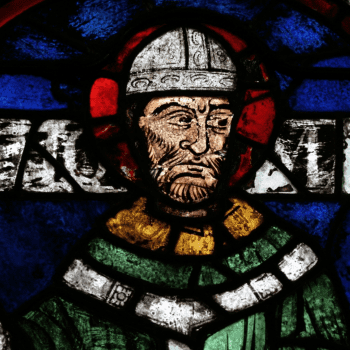A storm is brewing in East Texas after Right to Life East Texas director, Mark Lee Dickson, launched the “Sanctuary Cities for the Unborn” movement, which prompted several East Texas cities to pass abortion ban ordinances.
Waskom City Council passed its ordinance one year ago, which was followed by six similar ordinances passed by city councils.
In February, the Lilith Fund for Reproductive Equity and Texas Equal Access Fund joined an ACLU lawsuit, which challenged the ordinances. The lawsuit was dismissed in May.
In June, Dickson received a letter from a law firm representing the Lilith Fund and other abortion groups advising him to retract statements he had made about the organizations, or be sued.
“The comments they asked me to retract were comments which treated abortion as murder and the abortion-aiding organizations as involved in the criminal act of abortion,” Dickson said.
“I have no reason to retract anything that I said,” he added. “Abortion is the murder of innocent unborn human beings. The Lilith Fund and other abortion-aiding organizations all take part in the murder of innocent unborn human beings.”
The Lilith Fund, along with the Afiya Center and Texas Equal Access Fund, sued Dickson and Right to Life of East Texas, arguing that, “helping people seeking abortion care is not against the law.”
One month later on July 16, the Thomas More Society filed eight separate lawsuits against the three groups in Texas District Courts for the counties of Eastland, Franklin, Hockley, Hood, Panola, Rusk, Smith, and Taylor.
The nonprofit public interest firm argues that Texas law continues to define abortion as a criminal offense, despite the Supreme Court ruling on Roe v. Wade.
Article 1192 of the 1961 Texas Penal Code still imposes criminal liability on anyone who “furnishes the means for procuring an abortion knowing the purpose intended,” Dickson argues, which is still enforceable until the state legislature changes the law.
“We are merely requesting that the court affirm the truth about Texas law, which is that Texas has never repealed its pre-Roe statutes that outlaw abortion,” Thomas More Society Special Counsel Erick Kaardal said in a statement. “Therefore, it is both truthful and non-defamatory to describe abortion as a criminal act under Texas law.”
“It is often assumed that the Supreme Court’s judgment in Roe v. Wade somehow cancelled or formally revoked the Texas statutes that outlaw abortion unless the mother’s life is in danger,” Kaardal added. “However, the federal judiciary has no power to erase a statute that it declares to be unconstitutional. Roe merely limits the ability of Texas officials to enforce the state’s abortion statutes against those who violate them.
“The 1973 United States Supreme Court decision does not, and cannot, veto or repeal the statutes themselves. Texas’ criminal prohibitions on abortion continue to exist as state law until they are repealed by the legislature that enacted them.”
Abortion activists argue the opposite, pointing to Supreme Court Justice Blackmun’s opinion, which said, “Our conclusion that Art. 1196 is unconstitutional means, of course, that the Texas abortion statutes, as a unit, must fall.”
“Dickson and his handlers’ defamatory characterization of us as ‘criminal’ is bad enough, but at the end of the day, these lies are dangerous and damaging to the health and safety of Texans seeking abortion care,” Executive director of the Lilith Fund, Amanda Beatriz Williams, said in a statement.
Joining Thomas More Society attorneys in representing the plaintiffs are former Texas Solicitor General Jonathan F. Mitchell, State Senator and Attorney Bryan Hughes, and Attorneys H. Dustin Fillmore III and Charles W. Fillmore of Fillmore Law Firm.
The eight cases include:
- Blackwell v. The Lilith Fund for Reproductive Equity, et al.– Rusk County
- Byrn v. The Lilith Fund for Reproductive Equity, et al.– Taylor County
- Enge v. The Lilith Fund for Reproductive Equity, et al.– Smith County
- Gentry v. The Lilith Fund for Reproductive Equity, et al.– Eastland County
- Maxwell v. The Lilith Fund for Reproductive Equity, et al.– Hood County
- Moore v. The Lilith Fund for Reproductive Equity, et al.– Panola County
- Morris v. The Lilith Fund for Reproductive Equity, et al.– Hockley County
- Stephens v. The Lilith Fund for Reproductive Equity, et al.– Franklin County.















